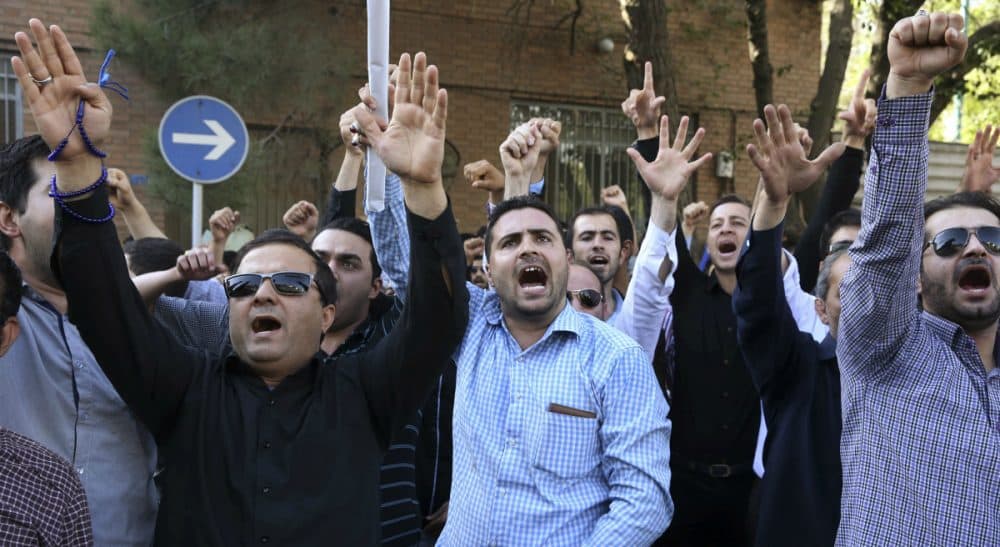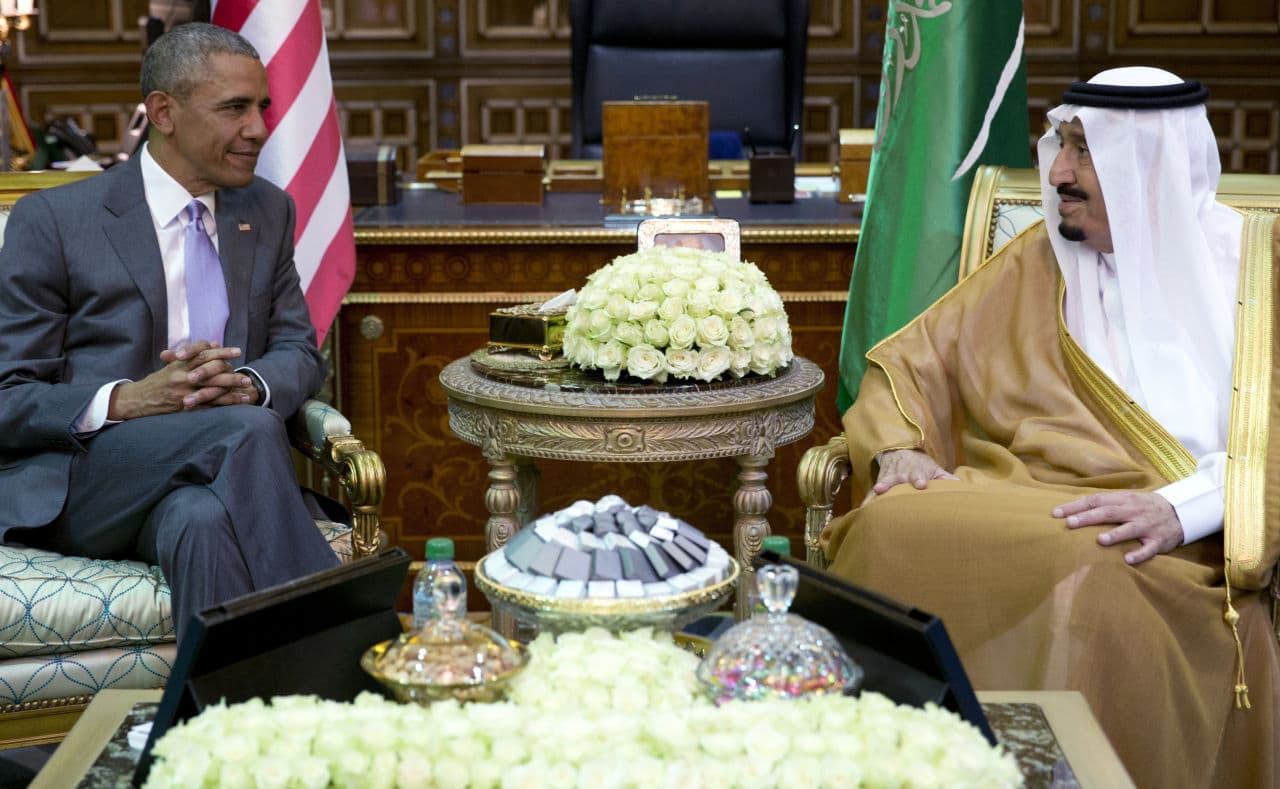Advertisement
Why We Should Care That Saudi Arabia And Iran Are At Each Other's Throats

Americans viewing the escalating tit for tat between Saudi Arabia and Iran may feel some relief that the countries have now turned their sights on each other instead of the U.S. But their poor relations are bad for peace. It is paramount for the U.S. to help the world’s largest theocracies to restore diplomatic ties; we need them to create a stable, functioning Middle East.
In the most recent drama, Iran has forbidden its citizens to attend the hajj, the annual pilgrimage to Mecca in Saudi Arabia in September. While preventing such a journey is surely a disappointment for the tens of thousands of Iranians who wait years to fulfill one of the pillars of Islam, it also marks a deeper rift in Saudi-Iran relations in a year that has been marred by division and retribution.
It is paramount for the U.S. to help the world’s largest theocracies to restore diplomatic ties; we need them to create a stable, functioning Middle East.
Iran’s boycott grew out of a stampede on a crowded street in Mecca that killed thousands last fall. The two countries have not even been able to agree on the numbers of those who perished, with Saudi Arabia asserting that around 700 were killed and Iran claiming that more than 4,500 people died. (The AP puts the death toll at 2,411.) For months, officials had been discussing ways to guarantee safety at the venue, but could not come to terms. Implicit in Iran’s boycott is the suggestion that the House of Saud is a poor protector of at least one of the two holy cities.
But it is also payback for the Saudis severing diplomatic ties, trade and air traffic with Iran earlier this year. Saudi Arabia is ruled by Sunni Wahhabist Muslims, and Iran by Shia Muslims. While the sects have competed for centuries, tension between the two nations escalated in January after Saudi Arabia executed a popular minority Shia cleric, Nimr al-Nimr, and 46 others. In protest, a Tehran mob stormed the Saudi embassy. The Saudis cut off practically all ties with Iran.

Just as Iran was getting out from UN sanctions after agreeing to the nuclear deal with the U.S., the Saudis harshly retaliated, trying to put Iran — an oil producer like Saudi — back into a box. The U.S. negotiation of the deal left the kingdom feeling particularly vulnerable and concerned about Iran’s resurgence. Bahrain, Sudan, and the United Arab Emirates, Saudi allies, followed with their own punishments.
The Saudis see Iran as a serious threat in the region, with three times the population and more than twice the number of active army troops. But Saudi is much richer, and spends five times the amount on defense as Iran does.
The United States had rightly urged the Saudis not to execute al-Nimr and has appealed to both countries to respect their Sunni and Shia minorities. The Obama administration should continue to promote human rights and religious tolerance, in addition to trying to get Saudi Arabia and Iran to re-establish ties.
Their rivalry is roiling the Middle East through multiple proxy fights.
Their rivalry is roiling the Middle East through multiple proxy fights. The Saudis are battling the Iranian-backed Houthi rebels in Yemen, while supporting fighters in Syria who are trying to topple President Bashar al-Assad who is reinforced by Iran.
As the Islamic State is defeated in Iraq, the U.S. will need cooperation from both the Saudis and the Iranians to create more stability. The Saudis could help persuade the Sunni tribes in Iraq that have helped and supported Islamic State to put down their arms. The Iranians could stop supporting and controlling the Shia militias that have helped push out the Islamic State.
President Obama predicted that the Islamic State would be routed from Mosul by the end of the year. That gives his administration just months to get the Saudis and the Iranians to agree to use their influence to bring peace to Iraq, which eventually could become a place where both Sunnis and Shia feel safe.
